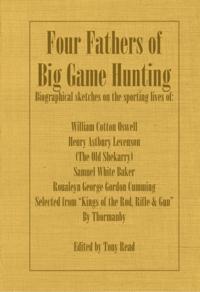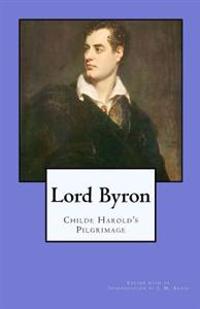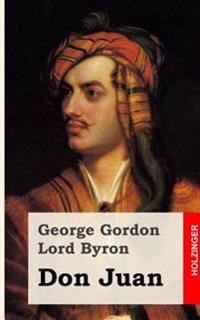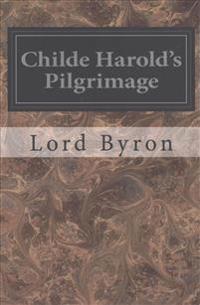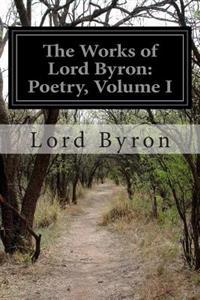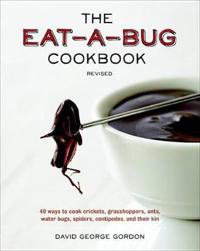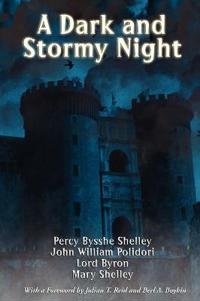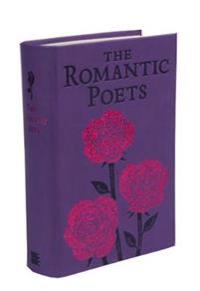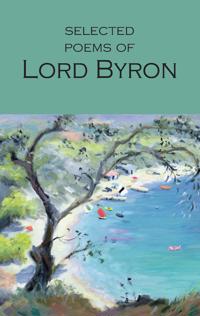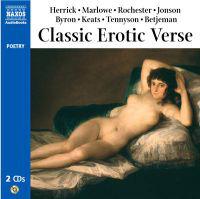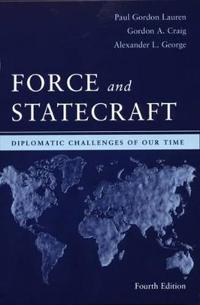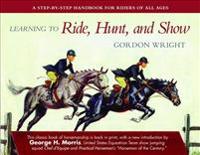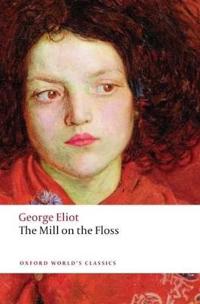Four Fathers of Big Game Hunting - Biographical Sketches Of The Sporting Lives Of William Cotton Oswell, Henry Astbury Leveson, Samuel White Baker & Roualeyn George Gordon Cumming
ISBN: 9781446549179 - UTGIVEN: 2015-06Biographical sketches of four of the most famous early big game hunters. Originally published in 1901. The illustrated contents include many little known facts and anecdotes on the sport and lives of William Cotton Oswell - Henry Astbury Leveson ("e;Old Shekarry"e;) - Sir Samuel White Baker[...]
Lord Byron: Childe Harold's Pilgrimage (Häftad)
avGeorge Gordon Lord Byron, J. M. Beach
ISBN: 9781481806176 - UTGIVEN: 2012-12Childe Harold's Pilgrimage (Häftad)
avLord George Gordon Byron
ISBN: 9781496056252 - UTGIVEN: 2014-02The Works of Lord Byron: Poetry, Volume I (Häftad)
avLord George Gordon Byron
ISBN: 9781502459282 - UTGIVEN: 2014-09The Eat-a-Bug Cookbook (Häftad)
avDavid George Gordon
ISBN: 9781607744368 - UTGIVEN: 201307With its stylish new package, updated information on the health and environmental benefits of insect eating, and breed-your-own instructions, this new edition of "The Eat-a-Bug Cookbook" is the go-to resource for anyone interested in becoming an entomological epicure.
Before Andrew Zimmern and A[...]A Dark and Stormy Night (Häftad)
avMary Shelley, William John Polidori, Lord George Gordon Byron
ISBN: 9781617209079 - UTGIVEN: 2013-01The Romantic Poets (Pocket)
avWilliam Blake, George Gordon, Lord Byron
ISBN: 9781626863910 - UTGIVEN: 2015-06Romanticism gained traction in the late 1700s as writers moved away from the intellectualism of the Enlightenment and toward more emotional and natural themes. The major works of the movement s five most famous poets William Wordsworth, George Gordon Byron, Percy Bysshe Shelley, Samuel Taylor Coleri[...]
The Selected Poems of Lord Byron (Storpocket)
avLord George Gordon Byron
ISBN: 9781853264061 - UTGIVEN: 199403I mean to show things really as they are, not as they ought to be'. wrote Byron (1788-1824) in his comic masterpiece Don Juan, which follows the adventures of the hero across the Europe and near East which Byron knew so well, touching on the major political, cultural and social concerns of the day. [...]
Classic Erotic Verse (CD-bok)
avLord George Gordon Byron, John Keats, Alfred Tennyson
ISBN: 9789626349380 - UTGIVEN: 200901A witty, bawdy, erotic but classic collection of poetry designed to celebrate the most sensual of human pleasures. Over the ages many poets have put pen to paper in celebration of that most raw and yet most beautiful of human instincts - erotic love. This anthology includes verse by Herrick, Marlowe[...]
Force And Statecraft (Pocket)
avPaul Gordon Lauren, Gordon A. Craig, Alexander L. George
ISBN: 9780195162493 - UTGIVEN: 200608This book is for upper division courses in Diplomatic History, Diplomacy and Statecraft, or history of foreign relations, and has sold extremely well through three editions. For the fourth edition, the original co-authors, Craig and George, were joined by Paul Lauren from the University of Montana. [...]
Learning to Ride, Hunt, and Show (Inbunden)
avGordon Wright, George H. (INT) Morris, Gordon Wright
ISBN: 9781602397262 - UTGIVEN: 2009-10Gordon Wright, the "founding father" of hunter-seat horsemanship is revered by generations of riders at all levels. This book, first published in 1966, covers the fundamentals of riding on the flat and over fences, both at home and in competition. There are also chapters on horse anatomy, stable man[...]
The Mill on the Floss (Pocket)
avGeorge Eliot, Gordon S. Haight, Dinah Birch
ISBN: 9780199536764 - UTGIVEN: 200808'But it's bad - it's bad,' Mr Tulliver added - 'a woman's no business wi' being so clever; it'll turn to trouble, I doubt.' Rebellious and affectionate, Maggie Tulliver is always in trouble. Recalling her own experiences as a girl, George Eliot describes Maggie's turbulent childhood with a sympathet[...]

